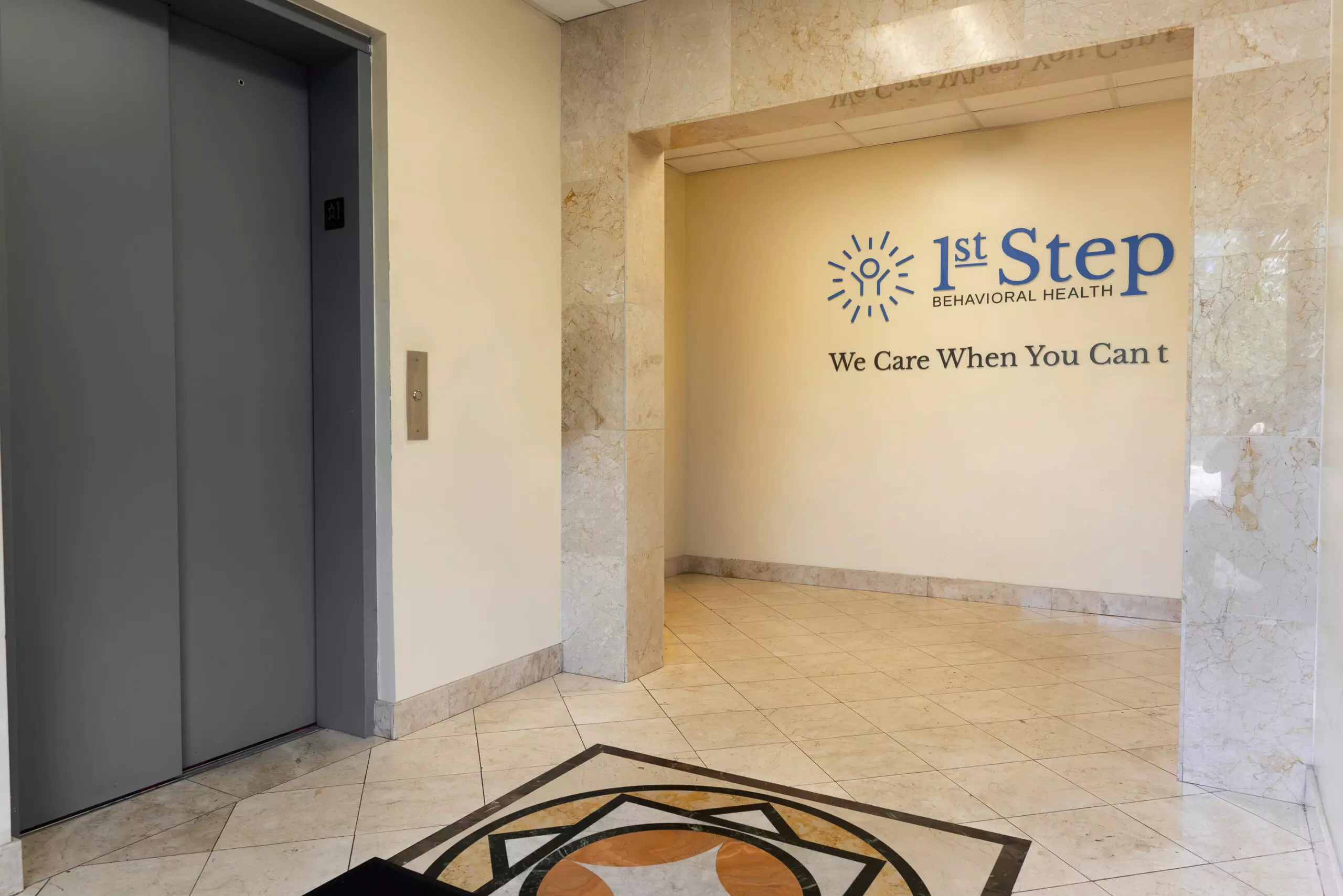Alcohol Addiction Treatment Center in Florida
Today, just about everyone knows that alcohol is addictive. However, alcohol is still a legal substance, and many people fail to realize how quickly alcohol addiction can take over their lives and leave a trail of damage in its wake. There’s a thin line between drinking heavily every once in a while and the dangerous drinking patterns that lead to alcoholism. Keep reading to find out more about alcohol addiction, alcohol rehab, and the various treatment options available.
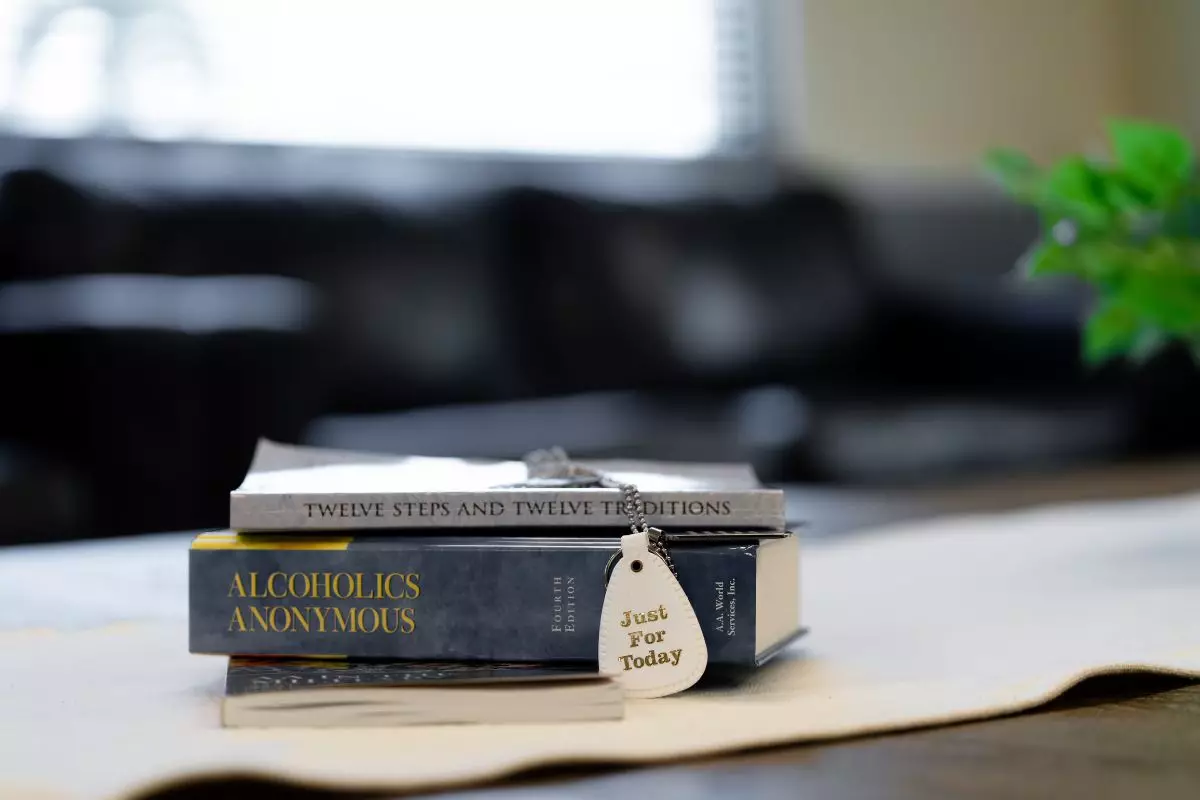
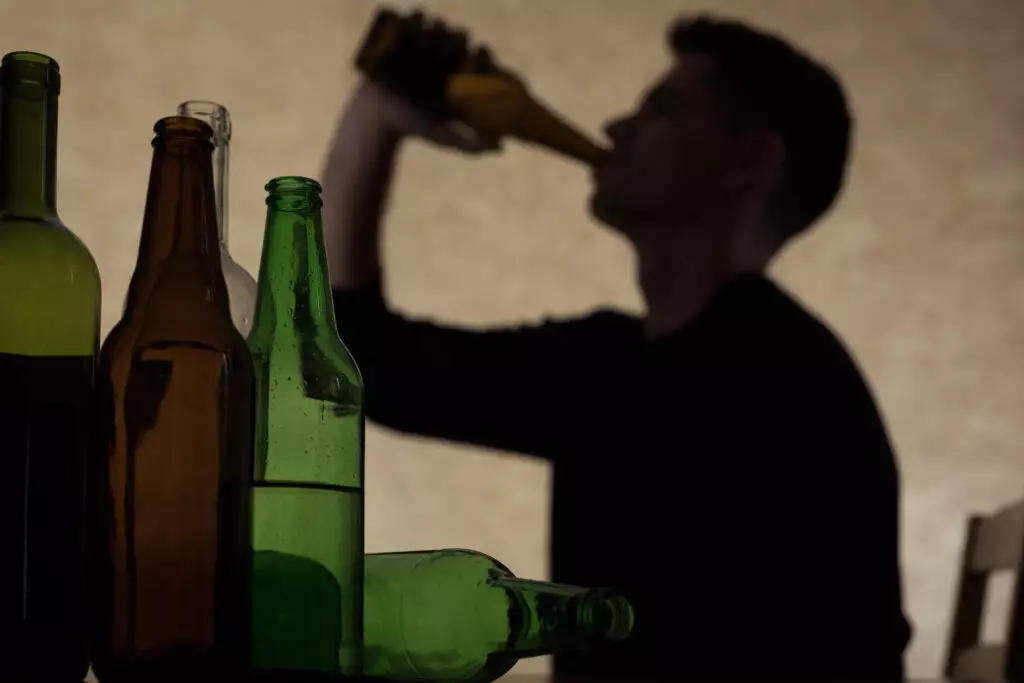
Understanding Alcoholism: Spotting the Signs
No matter your age, lifestyle, or community, you can develop an addiction to alcohol or drugs. Life may spin out of control while struggling with the damaging impacts of alcohol abuse. Spotting alcoholism is the first step toward getting treatment.
Common signs of alcoholism
If you see these problems in your life or the life of a loved one and know that alcohol is the source, alcohol addiction treatment may be the best next step. With the help of our quality alcohol rehab facility in Florida, you’ll get the tools and support you need to put your life back together.
- Increased tolerance – Needing more alcohol to achieve the desired effect or experiencing reduced effects from the same amount of alcohol. This can lead to increased alcohol consumption over time.
- Withdrawal symptoms – Experiencing withdrawal symptoms such as anxiety, nausea, shaking, or sweating when not drinking or attempting to quit drinking.
- Loss of control – People who struggle with alcoholism are unable to control the amount or frequency of drinking, despite attempts to cut down or quit.
- Desire to cut down or quit drinking – Expressing a desire to stop drinking or cut down on drinking but being unable to do so.
- Spending a lot of time and money on alcohol – Spending a significant amount of time and money obtaining, using, or recovering from the effects of alcohol.
- Neglecting responsibilities – Failing to fulfill major obligations at work, school, or home due to alcohol use.
- Cravings – Experiencing strong cravings or urges to use alcohol.
- Changes in interests – Giving up or reducing social, occupational, or recreational activities due to alcohol use.
- Continuing to drink despite problems – Continuing to use alcohol despite knowledge of having a persistent or recurrent physical or psychological problem that is likely to have been caused or exacerbated by alcohol.
- Relationship issues – Alcohol-related conflicts or problems in relationships with family members, friends, or colleagues that become exceedingly worse.
- Legal problems – Experiencing legal issues such as arrests or accidents related to one’s alcohol use.
- Risk-taking behaviors – Engaging in risky behaviors while under the influence of alcohol, such as drunk driving.
- Physical health problems – Developing alcohol-related health issues like liver disease, heart problems, or gastrointestinal problems.
- Psychological distress – Experiencing symptoms of depression, anxiety, or other mental health disorders that are worsened by alcohol use.
How Alcohol Abuse Leads to Alcoholism
There are many myths surrounding alcoholism. For example, many people think that they can’t become alcoholics if they exclusively drink beer. Others think an occasional glass of wine won’t lead to addiction. It’s important to understand that hard liquor isn’t the only substance that can lead to alcoholism–any form of regular alcohol abuse can lead to alcoholism.
A drinking problem often begins with social or occasional alcohol use, such as drinking with friends or at special events. Over time, some individuals start to consume alcohol more frequently or in larger quantities, often due to factors like stress, peer pressure, or using alcohol as a coping mechanism. As the body becomes accustomed to alcohol, tolerance builds. This means that individuals need to drink more to achieve the desired effects, such as relaxation or euphoria.
When not drinking or trying to cut down, individuals may start experiencing withdrawal symptoms like anxiety, sweating, and irritability. This can create a cycle where drinking is used to alleviate these symptoms. Those with alcohol abuse issues may find it challenging to control or limit their drinking despite negative consequences, such as problems at work, home, or legal issues.
Types of Alcohol Addictions
Beer Addiction
Beer seems safe when you compare it to other types of alcohol. Beer is a social drink, one people often consume during sports events and while listening to live music. This makes a beer addiction seem harmless under the shadow of hard liquor.
It’s true that beer has low alcohol content when you compare it to other types of alcoholic beverages. Its alcohol by volume (ABV) is two to twelve percent for most brands and. The vast majority of beer labels only have four to six percent alcohol. But beer still can lead to alcohol addiction, especially when someone is drinking for a longer duration.
Other problematic behaviors that can lead to beer addiction include drinking as a social crutch and to avoid boredom, regardless of the time of day or present company.
Wine Addiction
Wine addiction can be confusing. On one hand, health-oriented articles call wine “good for you.” On the other hand, wine can be just as dangerous and also lead to alcoholism. The key to wine, like any alcohol, is drinking in moderation.
The alcohol in one average glass of wine equals a full pint of beer. Like beer, people often drink wine in social settings. Doing so, however, can lead to alcohol addiction. This is especially true if you drink to calm your nerves or boost your mood. Additionally, if you find yourself drinking excessively while alone it may also be time to seek help.
Hard Liquor Addiction
Hard alcohol, known as liquor, includes vodka, gin, whiskey, rum, and tequila. When you compare liquor to beer and wine, liquor is the most potent form of alcohol. Most people mix liquor with soda, water, or juice. By doing so, they don’t realize how much they’re drinking per serving unless they’re taking “shots.” Drinking liquor early in the day, at the end of each day, or in large volumes several times per week increases the likelihood of alcoholism.
Alcohol Addiction Treatment Options in South Florida
Seeking help for alcohol addiction is the first step toward recovery. We offer many types of alcohol treatment programs in Florida including alcohol addiction therapy, medical detox, and inpatient and outpatient programs.
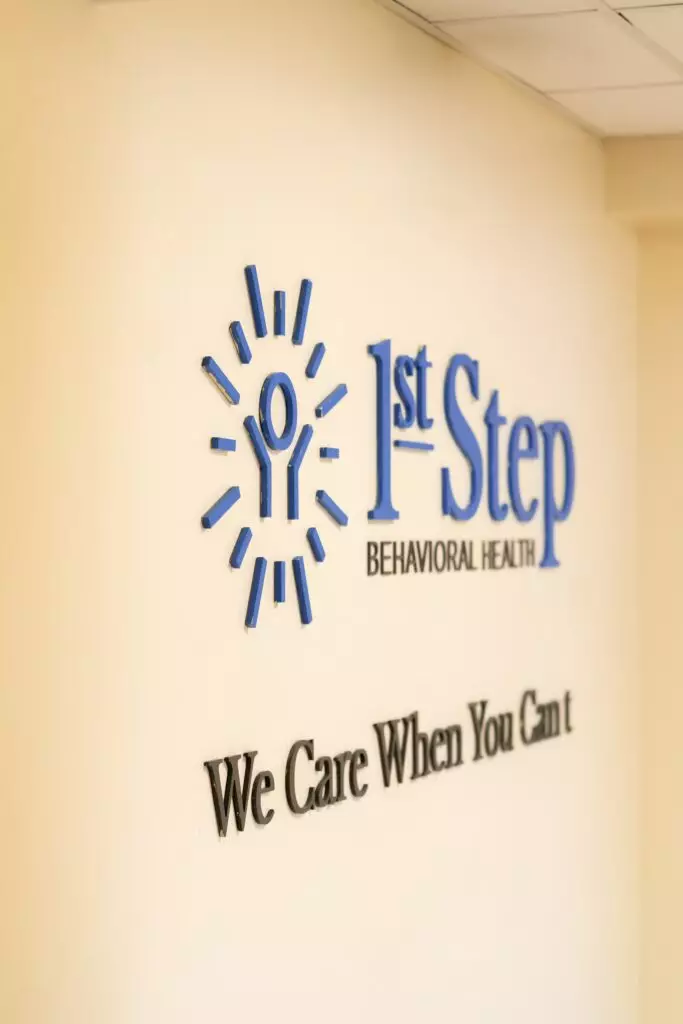

Medical Detox
Individuals who have been using alcohol regularly for an extended period can develop a chemical dependency. Attempting to stop drinking without medical supervision can be risky. Prolonged alcohol use leads the body and brain to adapt, and abruptly ceasing alcohol consumption, commonly known as “going cold turkey,” can result in seizures, respiratory depression, and even stroke due to these compensatory mechanisms.
As part of your initial treatment for alcohol addiction, you will likely undergo a medical detoxification program. Our dedicated staff will support you in achieving freedom from alcohol and removing harmful toxins from your body, enabling you to embark on your journey to recovery with comfort and ease.
Our alcohol detox program in Florida is designed to address physical dependence on alcohol. Detox involves the careful use of various medical treatments aimed at alleviating the symptoms of alcohol withdrawal.
Inpatient Alcohol Rehab
After detox, our Florida alcohol rehab offers a full continuum of care, beginning with inpatient rehab. Inpatient rehab offers a safe and controlled setting for individuals to address the physical, emotional, and psychological aspects of alcohol addiction while working towards sustained sobriety.
During inpatient rehab, clients live at the treatment facility and have 24-hour support. This structured environment offers a break from the triggers and stresses of everyday life, allowing individuals to focus solely on their recovery journey. Clients attend intensive therapies throughout the day and have the opportunity to participate in numerous holistic healing activities.
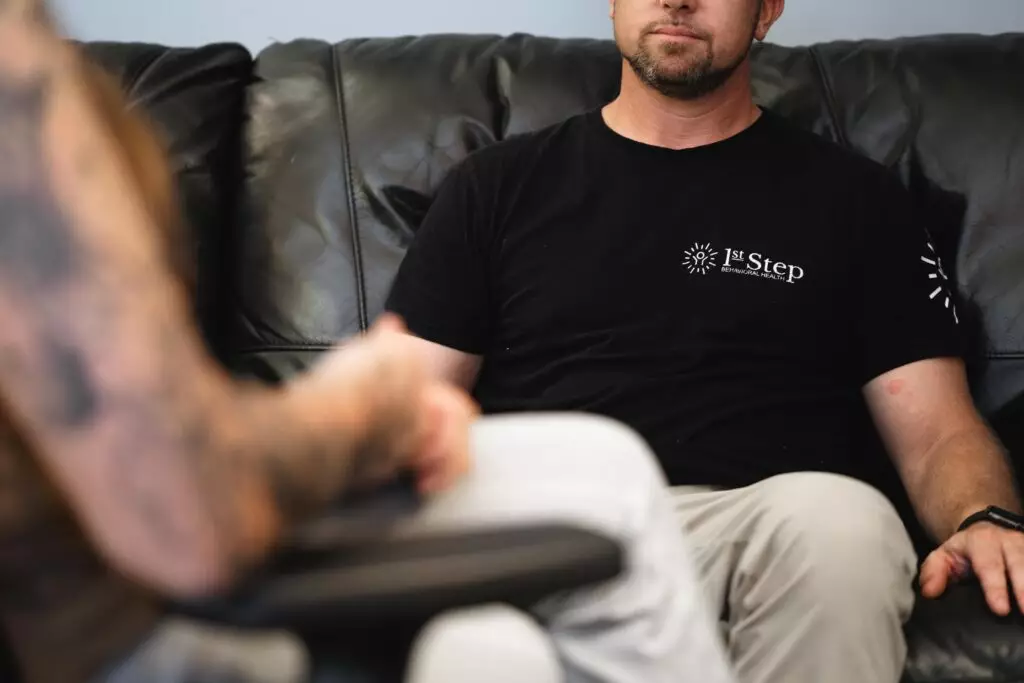

Partial Hospitalization Program (PHP)
Those who participate in our partial hospitalization program typically live in our community housing, which is a beautiful apartment-style, semi-private residence. This level of care provides structure and support while allowing more flexibility within the community. Access to medication management, nurse practitioners, doctors, and psychiatrists is still available to clients throughout the program.
During PHP, clients attend treatment throughout the day and partake in therapy groups, structured activities, and aftercare planning. Interaction with family, peers, and other members of the patient’s community is highly encouraged throughout our Florida PHP. We even organize various activities and provide transportation to meetings and events that can help those in treatment to successfully overcome their drinking problem. Having the ability to maintain meaningful relationships with loved ones and creating relationships with others who are in recovery are both important aspects of lasting sobriety.
Intensive Outpatient Program (IOP)
Intensive Outpatient Programs (IOP) are a flexible and effective approach to addiction treatment that allows individuals to receive intensive therapeutic support while maintaining some level of independence in their daily lives. An intensive outpatient program or IOP consists of structured alcohol addiction treatment and mental health counseling. It is the middle ground between inpatient rehab and aftercare that allows individuals to receive extensive support without the necessity of 24-hour supervision. IOPs are valuable in promoting long-term recovery and can be tailored to fit the unique needs and schedules of each participant.


Outpatient Alcohol Rehab
Not all patients are able to take a significant amount of time away from everyday life. After spending weeks detoxing and undergoing inpatient rehab for alcohol, they may need to return to life’s responsibilities. This could include anything from caring for children, to working. Fortunately, patients don’t have to give up their responsibilities in order to continue their sobriety journey. Outpatient programs allow plenty of time for work or family obligations while undergoing alcohol addiction treatment.
Our outpatient alcohol rehab program in Florida offers evidence-based alcohol addiction therapy on a flexible basis that can fit any client’s schedule. It can make it easier to adjust to independent living and mitigate relapse.
Medications Used to Treat Alcoholism
The FDA has approved several medications for the treatment of alcohol use disorder. These include:
- Naltrexone (Vivitrol) – Naltrexone is an opioid receptor antagonist that reduces alcohol cravings and can help prevent relapse by blocking the pleasurable effects of alcohol. It’s available as a monthly injection called Vivitrol or in oral form.
- Acamprosate (Campral) – Acamprosate is a medication that helps balance brain chemicals disrupted by long-term alcohol use. It is used to reduce withdrawal symptoms and cravings, supporting individuals in maintaining sobriety.
- Disulfiram (Antabuse) – Disulfiram is an aversion therapy medication. When someone takes Disulfiram and then consumes alcohol, it leads to unpleasant physical reactions like nausea, vomiting, and flushing. This discourages alcohol use by creating a strong deterrent.
Medications are intended to supplement a comprehensive alcohol rehab program.
Find Alcohol Addiction Treatment in Pompano Beach, FL Today
No matter what type of alcohol addiction you or a loved one is suffering from, help can be found at First Step Behavioral Health alcohol rehab in Florida. Our state-of-the-art center has helped thousands of people find an alcohol treatment plan to help kick their drinking problem for good. Give us a call or text at (855) 425-4846 or contact us online today.
